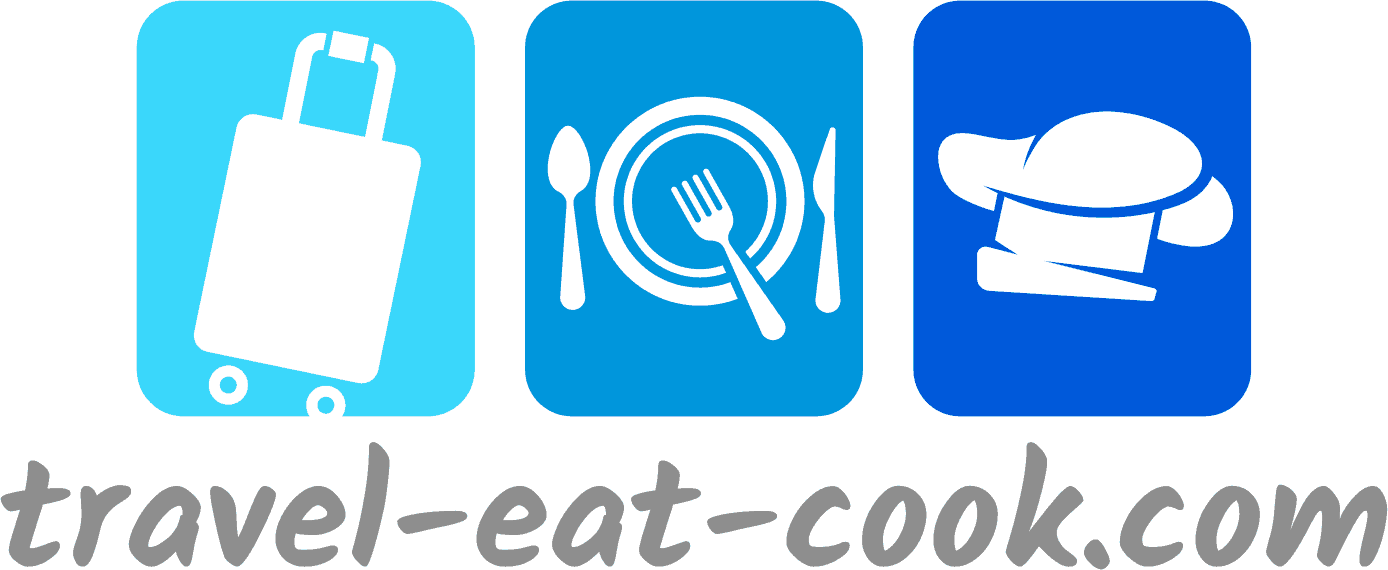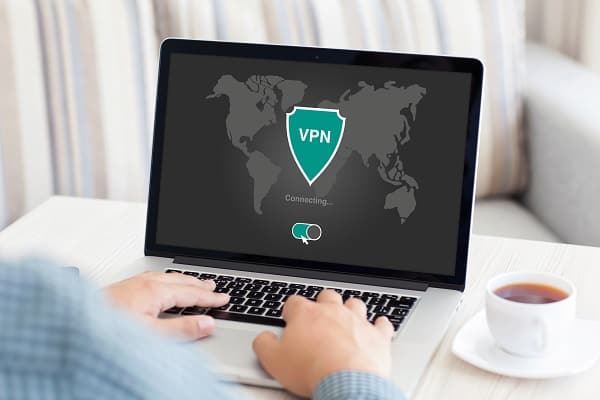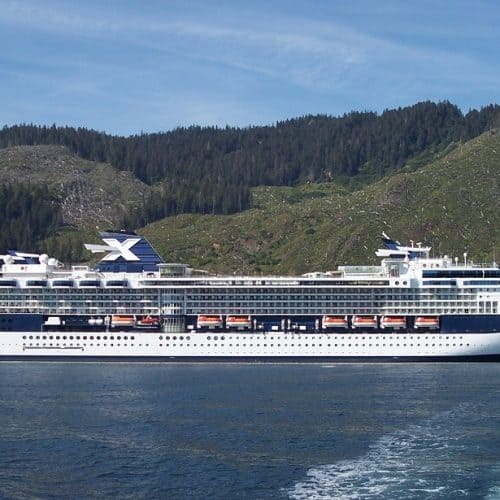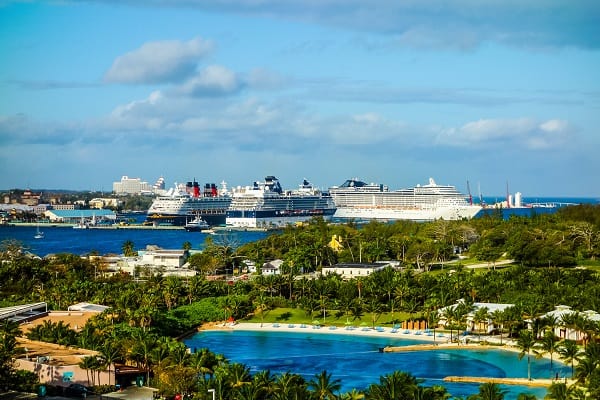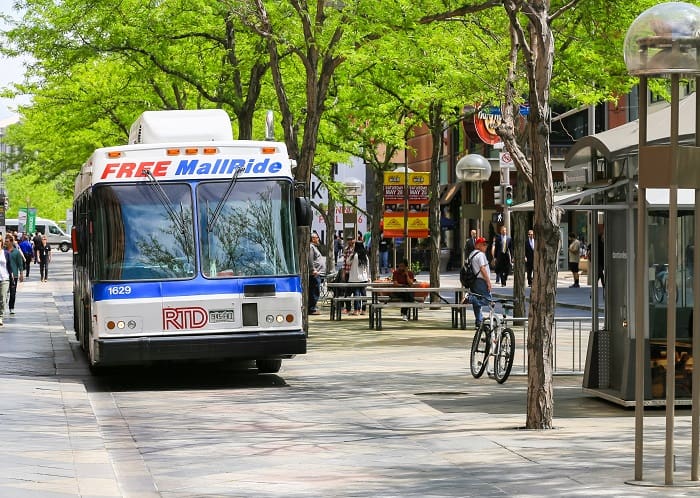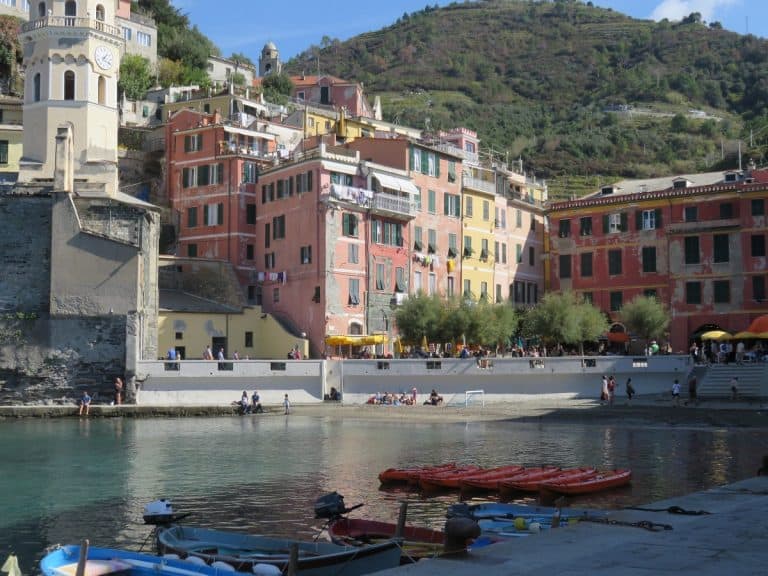7 Reasons You Should Use A VPN When Traveling
We’ve all been there… You’re traveling and want or need to stay connected to the internet, but you’re not sure if it’s safe to use public Wi-Fi. It’s just so tempting…
For me using public Wi-Fi feels like walking through a minefield. You don’t know who or what is on the other end of that connection.
A VPN (Virtual Private Network) is the answer. When you connect to a VPN, all of your traffic is encrypted and sent through a secure tunnel, so you can stay connected to your home network without worrying about who’s listening in.
In a nutshell, these are the reasons you should use a VPN when traveling.
This article may contain affiliate links. We may earn a commission if you use these links to buy products or services. Please see our disclosure policy for full details. Thanks.
What is a VPN?
Ok, but what is a VPN? VPN stands for “Virtual Private Network.” This network is a secure tunnel between your mobile device or computer and the internet. Here’s how it works:
First, You establish an account with a VPN Provider Company. Once you log in to your VPN, your requests are routed to a server operated by your VPN Provider every time you access the internet.
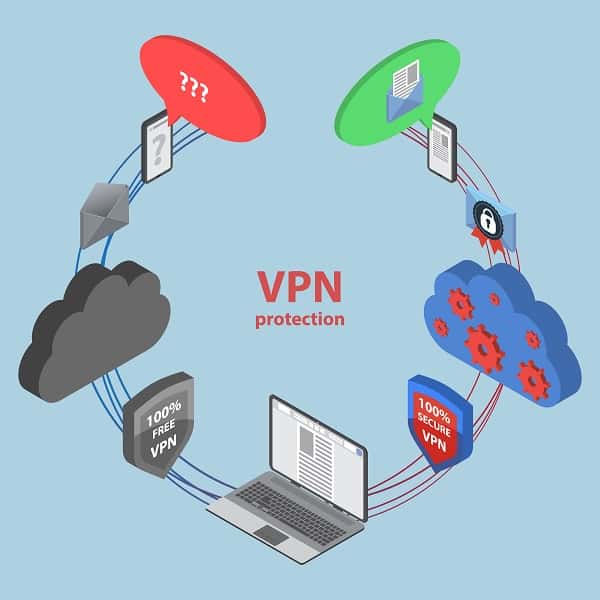
That server then routes your traffic via an encrypted tunnel to another VPN server (operated by a different company, perhaps another VPN Provider Company Y) and from there to your destination.
All of this happens in the blink of an eye. So from the perspective of any snooping eyes on your network connection, your data is encrypted and wholly obfuscated as it travels between you and your final location on the internet.
Many companies sell VPNs; some are even free. Some companies allow free trials, so you can test out a VPN service before shelling out any cash. You’ll find a list of popular providers at this article’s end.
Essential Reasons You Should Use A VPN When Traveling
You should use a VPN for all your internet traffic for many reasons, especially when you choose to use “free” or “public” Wi-Fi access. When you travel, the temptation to connect to public Wi-Fi in locations like parks, airports, and cafes increases dramatically!
We recently returned from a week in Switzerland and two weeks on a cruise out of Southampton to Spain and France. During those three weeks, my husband and I were online every day.
But with protection from our VPN, we didn’t worry about being hacked as we logged on to Wi-Fi locations everywhere we went.
Hackers and other criminals are known to set up fake “hot spots” to eavesdrop on your internet connections. These fake hot spots allow the bad guys to intercept the information traveling between you and the website or service you’re using.
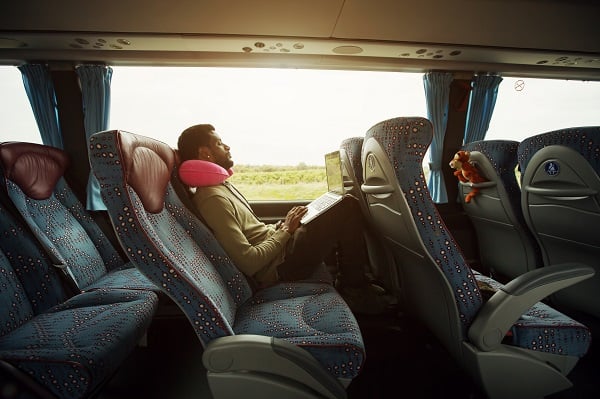
Without a VPN, you may be handing over your e-mail address or phone number to a hacker just to gain access to the internet.
Encrypting all of your internet traffic via a VPN makes it much harder for hackers to intercept your private data. You can use public Wi-Fi without worrying about leaving yourself exposed.
1. Privacy Is The Biggest Reason You Should Use A VPN When Traveling
Privacy is critical when traveling because cyber crooks count on eavesdropping on travelers’ activities. Anyone can use a free Wi-Fi connection to lure you into revealing personal information about yourself or your business. By using “HTTPS” (the “s” stands for secure) in the URL, crooks make it appear that a connection is secure.
Encryption prevents cybercriminals from looking over your shoulder and seeing what you’re doing online. This is particularly important when conducting financial transactions or exchanging sensitive information with a company or organization via its website. Hackers may be able to intercept unprotected traffic sent over unencrypted networks.

And we all know that websites and services may record your activity and store your private data. All of your data could become compromised if an attacker gains access to their servers.
Encryption ensures that your internet traffic is completely private at all times. And privacy is critical when you’re traveling abroad.
2. A VPN Can Help Prevent Frozen Bank Accounts
Logging in to your bank or credit card accounts from a foreign country sets off an alarm with your bank. Suppose the bank doesn’t recognize your country of origin based on your IP address. In that case, they may freeze your account for security purposes.
That’s why this is the 2nd of my reasons you should use a VPN when traveling. With a VPN, you can choose the location where you sign in. Your bank will think you are at home, not say in Russia.

All the while, you still keep your information safe and secure when banking or shopping online while traveling abroad. You won’t have to worry about frozen accounts or compromised data.
3. Safety And Security
Everyone knows by now that dozens of companies are tracking your activities online – even when you’re browsing the web from inside a private browser window. They do this by sitting between you and the websites or services you use, giving them access to all the information flowing between your device and their servers.
Privacy is essential when traveling abroad since many countries don’t share the same protections you might have in your home country. Remember the 1st of our reasons you should use a VPN?
You want to prevent snooping governments from tracking your online activity. Governments can track who you’re talking to, which websites you visit, and what documents you download or upload through a program like PRISM.
If you don’t want the government and big corporations prying into your life via the internet, always use a VPN while you’re connected to the web.
4. Hide Your Location And Your IP Address
Anyone can use your IP address to track your online activities. Using a VPN, hiding your true location and IP address makes it harder for someone to track you online.
If you’re concerned about your privacy, you may want to hide your location and IP address. If someone knows your IP address, they can easily find your location.
Virtual Private Networks obscure your location by encrypting all internet data that leaves your device and sending it to a server operated by the VPN company. From their end, they can forward this information along to its final destination without revealing where it came from.
This is excellent for both business and personal use because you’ll be able to log in to accounts you usually wouldn’t access unless you were physically present in the country. This is one of the best reasons for using a VPN I can think of.
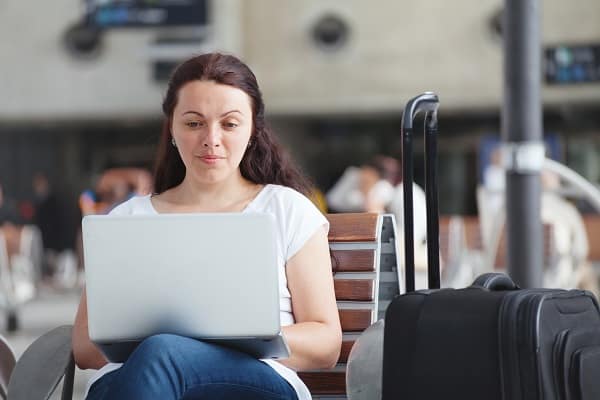
5. Access Blocked Websites
While traveling, you may find that some websites are blocked. Governments in some countries decide to block certain websites and control their citizen’s access to content.
A Virtual Private Network can help you access these websites by encrypting your traffic and sending it to a server located in a country where the website is not blocked. From there, the VPN company can forward the traffic along to its final destination without revealing where it came from.
Another good reason you should use a VPN when traveling is that it is a great way to bypass government censorship and access the websites you need and want.
6. Search Your Favorite Websites, Watch TV, And Shop OnLine As Though You Are at Home
When you’re shopping online, you can use Virtual Private Network (VPN) to make it appear as though you’re browsing from your home country.
This is a great way to access the entire catalog of items offered by websites like Amazon and eBay and take advantage of the lower prices shown by stores in other countries.
VPNs also allow you to watch TV and movies from other countries without worrying about geographical restrictions.

Using a VPN, you can appear as though you’re located in any country you choose. This is a great way to get around the restrictions put in place by Netflix, Hulu, and other streaming services.
7. Use A VPN To Get Better Travel Deals
7th on our list of reasons you should use a VPN is this: The use of a VPN is an excellent way to get better travel deals. It’s no secret that most airlines and hotels put a premium on international travelers, which means they charge higher rates for their services.
But, by using a VPN with servers in the countries you’re visiting, you can appear to be located there and not have to pay inflated prices. This is especially true when it comes to booking flights or hotels ahead of time–you can save yourself hundreds or even thousands of dollars with this trick!

What Should You Look For When Choosing A VPN
Now that you’ve seen the benefits of using a Virtual Private Network (VPN), it’s time to learn how these services work and how you can get started with one. Since there are dozens of different options available, be sure to look for the following features:
Best VPNs For Travelers
If you’re looking for a Virtual Private Network that you can use while traveling, be sure to consider the following services:
ExpressVPN: is one of the most popular VPNs, with servers located in 94 countries/regions and excellent customer service. ExpressVPN is a perfect option for business and personal use.
NordVPN: a popular VPN with superfast speeds, over 5,200 VPN servers, and a verified no-logs policy.
StrongVPN: has servers in more than 21 countries, making it an excellent option for people who frequently need to change their geographic location.
There are dozens of Virtual Private Networks available online. Still, few offer the advanced security features that you need to protect yourself while traveling.
With ExpressVPN, StrongVPN, or NordVPN, you can easily change your geographical location with ease–and you won’t worry as much about your data falling into the wrong hands.
Are There Downsides To Using a VPN?
While VPNs are generally reliable and offer several great features, there are a few downsides to consider before signing up.
First, your data is routed through another server rather than directly to its destination. Using a VPN can slow down your connection. This can be especially noticeable when streaming video or downloading large files.
Second, not all VPNs offer the same level of security. Some VPNs are less reliable and may leak your data, while others may be more susceptible to hacking. It’s important to do your research before choosing a VPN to ensure you get the best protection for your devices.
In some countries, VPNs are forbidden or limited. According to PrivacyHub, while 196 countries completely support VPNs, at least ten(10) countries ban or limit the use of VPNs.
VPN use can result in various penalties, from a substantial fine to prison time in these countries. Like most things when you travel, you should know the general rules and laws of the countries you visit.
What Are Your Reasons For Not Using A VPN?
VPNs are an essential tool to have in your online security arsenal. Of course, you want to keep your data safe and secure. But VPNs can also help you get around restrictions placed on some websites by governments or employers.
With so many benefits, it’s no wonder that more people use VPNs daily. Are you one of them? If not, what’s stopping you?
